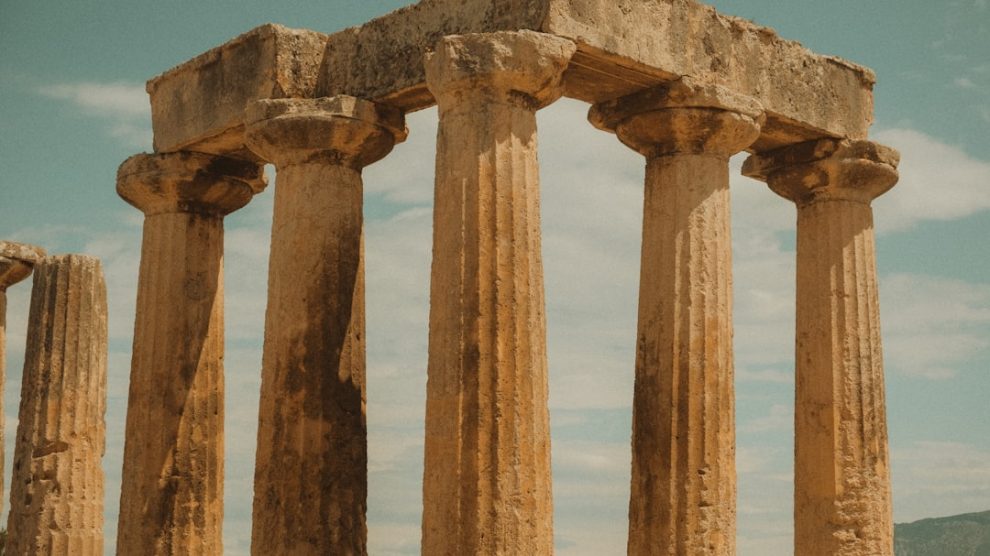As I navigate through life, I often find myself confronted with the unpredictable nature of existence. Uncertainty is an inherent part of the human experience, and change is the only constant I can rely on. Whether it’s a sudden shift in my career, unexpected personal challenges, or the broader societal upheavals that seem to occur with alarming frequency, I have come to realize that uncertainty is not something to be feared but rather acknowledged as a fundamental aspect of life.
This understanding has allowed me to approach change with a sense of curiosity rather than dread, recognizing that each transition carries the potential for growth and new opportunities. In grappling with uncertainty, I have learned that my perception plays a crucial role in how I respond to change. Instead of viewing change as a threat, I strive to see it as a chance to adapt and evolve.
This shift in perspective has been liberating; it empowers me to embrace the unknown rather than resist it. By accepting that I cannot control every aspect of my life, I free myself from the burden of anxiety that often accompanies uncertainty. This acceptance does not mean I am passive or complacent; rather, it encourages me to remain proactive and engaged, seeking ways to navigate the complexities of life with grace and resilience.
Key Takeaways
- Uncertainty and change are natural parts of life, and understanding their nature can help us navigate them more effectively.
- Embracing stoic principles, such as focusing on what is within our control and accepting what is not, can help us find stability in times of turmoil.
- Cultivating resilience and adaptability through stoic practices, such as negative visualization and voluntary discomfort, can prepare us for unexpected challenges.
- Applying stoic philosophy, such as practicing self-reflection and maintaining perspective, can help us navigate personal and professional transitions with grace.
- Finding inner peace and stability in the midst of uncertainty is possible through stoic practices like mindfulness and gratitude.
Embracing Stoic Principles in Times of Turmoil
In moments of turmoil, I find solace in the teachings of Stoicism, a philosophy that emphasizes the importance of inner strength and rationality. The Stoics remind me that while I cannot control external events, I can control my reactions to them. This principle resonates deeply with me, especially during challenging times when emotions can easily spiral out of control.
By focusing on what is within my power—my thoughts, beliefs, and actions—I cultivate a sense of agency that helps me weather the storms of life. One of the core tenets of Stoicism is the idea of distinguishing between what is within my control and what is not. This practice has become a guiding light for me during periods of uncertainty.
When faced with difficult situations, I consciously remind myself to let go of worries about outcomes that are beyond my influence. Instead, I channel my energy into responding thoughtfully and constructively to the challenges at hand. This shift in focus not only alleviates stress but also fosters a sense of clarity and purpose in my actions.
Cultivating Resilience and Adaptability through Stoic Practices

Resilience is a quality I aspire to embody, especially in the face of adversity. Through Stoic practices, I have discovered various techniques that help me cultivate this essential trait. One such practice is the daily reflection on my thoughts and actions.
By taking time each day to assess my responses to challenges, I gain valuable insights into my behavior and mindset. This self-awareness allows me to identify patterns that may hinder my resilience and make conscious choices to alter them. Another powerful Stoic practice that has enhanced my adaptability is the concept of negative visualization.
By contemplating potential setbacks or losses, I prepare myself mentally for various outcomes. This exercise does not lead me to dwell on negativity; rather, it equips me with a sense of readiness for whatever may come my way. When I envision worst-case scenarios, I often find that they are not as daunting as they initially seem.
This mental rehearsal fosters a sense of confidence in my ability to navigate change, reinforcing my resilience in the face of uncertainty.
Applying Stoic Philosophy to Navigate Personal and Professional Transitions
As I encounter personal and professional transitions, Stoic philosophy serves as a compass guiding me through uncharted waters. Whether it’s changing jobs, moving to a new city, or experiencing shifts in relationships, I draw upon Stoic principles to navigate these changes with intention and purpose. One key aspect of this process is embracing the idea that every transition presents an opportunity for growth and self-discovery.
In practical terms, I apply Stoic teachings by setting clear intentions for how I want to approach each transition. Instead of succumbing to fear or anxiety about the unknown, I focus on what I can learn from the experience. This mindset shift transforms transitions into valuable learning opportunities rather than sources of stress.
By framing change as a chance for personal development, I empower myself to embrace new challenges with enthusiasm and an open heart.
Finding Inner Peace and Stability in the Midst of Uncertainty
In a world rife with uncertainty, finding inner peace has become a priority for me. Stoicism offers a pathway to cultivate this tranquility amidst chaos. One practice that has been particularly effective is mindfulness meditation, which aligns seamlessly with Stoic principles.
By taking time each day to center myself and observe my thoughts without judgment, I create a space for calmness and clarity in my mind. Additionally, I have learned the importance of gratitude in fostering inner peace. By regularly reflecting on the aspects of my life for which I am thankful, I shift my focus away from what is lacking or uncertain.
This practice grounds me in the present moment and reminds me that even amidst change, there are always blessings to be acknowledged. Cultivating gratitude has become a powerful antidote to anxiety, allowing me to maintain a sense of stability even when external circumstances are unpredictable.
Using Stoic Wisdom to Manage Anxiety and Fear in Times of Change

Anxiety and fear often accompany periods of change, but Stoic wisdom provides me with tools to manage these emotions effectively. One key strategy is reframing my thoughts around fear. Instead of viewing fear as an enemy to be vanquished, I recognize it as a natural response to uncertainty.
By acknowledging my fears without judgment, I create space for them to exist without allowing them to dictate my actions. Moreover, I find comfort in the Stoic practice of focusing on the present moment. When anxiety threatens to overwhelm me with thoughts about the future or regrets about the past, I consciously redirect my attention to what is happening right now.
This practice not only alleviates anxiety but also enhances my ability to engage fully with life as it unfolds. By grounding myself in the present, I cultivate a sense of calm that empowers me to face change with courage and resilience.
Building Mental Strength and Emotional Stability with Stoic Teachings
Mental strength and emotional stability are qualities I strive to develop continuously, especially during turbulent times. Stoic teachings emphasize the importance of fortitude in the face of adversity, reminding me that challenges are opportunities for growth rather than obstacles to be avoided. By embracing this mindset, I cultivate a sense of inner strength that allows me to confront difficulties head-on.
One practical way I build mental strength is through journaling. By documenting my thoughts and feelings during challenging moments, I gain clarity about my emotions and can process them more effectively. This practice not only helps me release pent-up feelings but also provides valuable insights into my thought patterns.
Over time, I have noticed that journaling fosters emotional stability by allowing me to confront my fears and anxieties rather than suppressing them.
Incorporating Stoic Principles into Daily Life for Greater Equanimity
Incorporating Stoic principles into my daily life has become a transformative practice that enhances my overall well-being. One simple yet powerful way I do this is by starting each day with intention. As part of my morning routine, I take a few moments to reflect on what lies ahead and set an intention grounded in Stoic values such as resilience, gratitude, and acceptance.
This practice helps me approach each day with a sense of purpose and clarity. Additionally, I strive to cultivate equanimity by practicing mindfulness throughout the day. Whether it’s during moments of stress at work or navigating interpersonal conflicts, I remind myself to pause and breathe before reacting impulsively.
This conscious effort allows me to respond thoughtfully rather than react emotionally, fostering a sense of balance even amidst chaos. By integrating these Stoic principles into my daily life, I find greater equanimity and peace in an ever-changing world. In conclusion, embracing uncertainty and change through the lens of Stoicism has profoundly impacted my life.
By understanding the nature of change, applying Stoic principles during turmoil, cultivating resilience through practices like reflection and negative visualization, navigating transitions with intention, finding inner peace amidst chaos, managing anxiety through present-moment awareness, building mental strength through journaling, and incorporating these teachings into daily life, I have developed a more profound sense of stability and equanimity. As I continue on this journey, I remain committed to living by these principles, knowing they will guide me through whatever challenges lie ahead.









Add Comment